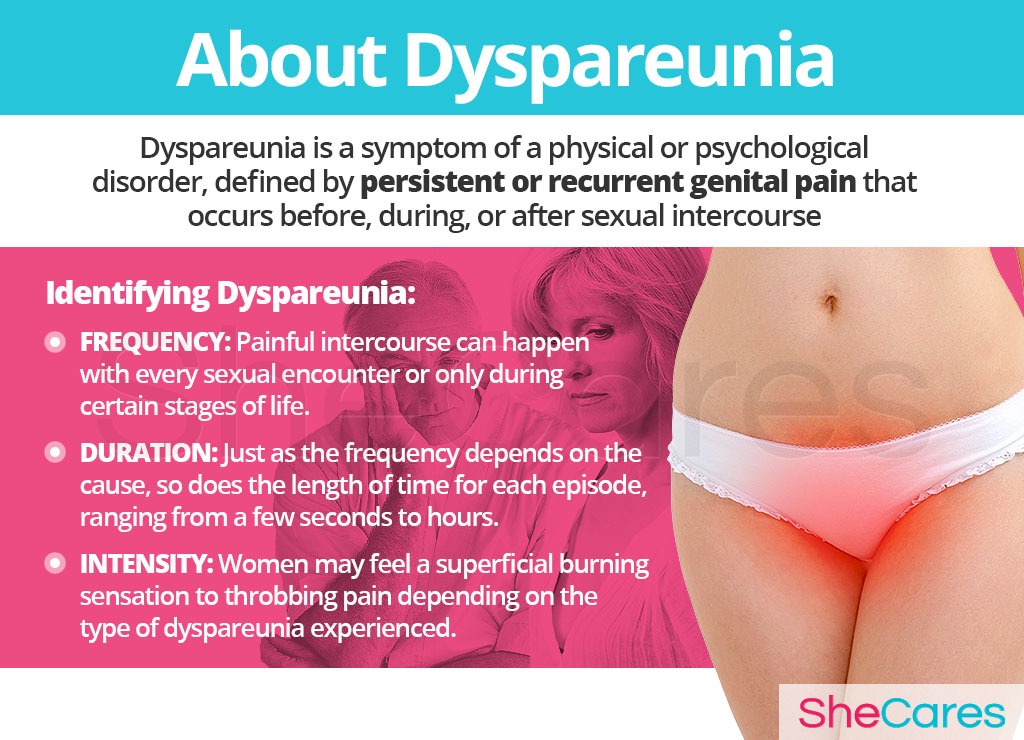Coping With Dyspareunia: Causes
When it comes to experiencing pain during sex, it's important to understand the causes and treatment options available. Here are some images and information to help you better understand dyspareunia:
Treatment Options for Painful Intercourse (Dyspareunia)

Dyspareunia is a condition that affects many women and can cause pain during intercourse, making sexual activity unbearable. Fortunately, there are many treatment options available for women who experience dyspareunia. Some of the most common treatments include:
- Changing sexual positions
- Vaginal moisturizers and lubricants
- Estrogen therapy
- Counseling or sex therapy
- In some cases, surgery
It's important to speak with your healthcare provider before starting any treatment options to determine what's best for you.
Pin on Hormonal Imbalance Symptoms

Hormonal imbalances can contribute to the development of dyspareunia, and there are many different symptoms of a hormonal imbalance. Some of these symptoms include:
- Irregular periods
- Chronic fatigue
- Weight gain or weight loss
- Infertility or decreased fertility
- Depression or anxiety
If you experience any of these symptoms, it's important to speak with your healthcare provider to determine if a hormonal imbalance is the cause and what treatment options are available.
Dyspareunia Causes, Symptoms, Diagnosis and Treatment - Natural Health News

Dyspareunia can have many different causes, and understanding these causes can help determine the best course of treatment. Some of the most common causes of dyspareunia include:
- Vaginal dryness or hormonal changes
- Infections such as yeast infections
- Endometriosis or fibroids
- Pelvic inflammatory disease
- Psychological factors
It's important to speak with your healthcare provider to determine the cause of your dyspareunia and what treatment options are available.
Dyspareunia Causes, Symptoms and Solutions – What Can You Do?

Understanding the causes and symptoms of dyspareunia is important, as it can lead to identifying solutions that can help alleviate symptoms. Some possible solutions include:
- Vaginal moisturizers and lubricants
- Estrogen therapy
- Changing sexual positions
- Surgery in some cases
- Sex therapy or counseling
It's important to speak with your healthcare provider to determine the best course of action for you.
Dyspareunia - Hormonal Imbalance Symptoms | SheCares

Women who experience dyspareunia should also be aware of the importance of recognizing the early symptoms of this condition, as early detection and treatment can lead to better outcomes. Some common symptoms of dyspareunia include:
- Pain or discomfort during sexual activity
- Burning or itching in the genital area
- Pain during urination
- Vaginal bleeding after intercourse
- Difficulty becoming aroused
If you experience any of these symptoms, it's important to speak with your healthcare provider to determine the cause of the symptoms and what treatment options are available.
Diagnostic
Dyspareunia can be diagnosed through a physical exam and a discussion of symptoms with your healthcare provider. In some cases, additional testing may be needed to determine the cause of dyspareunia. These tests may include:
- Urinalysis or other lab tests
- Pap smear or other cervical screening tests
- STD testing
- Biopsy or imaging tests in some cases
It's important to speak with your healthcare provider to determine if additional testing is needed to determine the cause of your dyspareunia.
Awareness and Prevention
While dyspareunia can be caused by a number of different factors, there are some steps women can take to help prevent this condition. Some prevention tips include:
- Using lubricants during sexual activity
- Practicing good genital hygiene
- Using condoms during sexual activity to prevent STDs
- Maintaining a healthy weight
- Stopping smoking or using other tobacco products
By being aware of the risk factors for dyspareunia and taking steps to prevent it, women can reduce their risk of developing this painful condition.
Early Detection
Early detection of dyspareunia is important, as it can help women get the treatment they need to alleviate pain and discomfort during sexual activity. Women who experience any of the symptoms of dyspareunia should speak with their healthcare provider to determine the cause of the symptoms and what treatment options are available.
Timely Treatment
Timely treatment is important for women who experience dyspareunia. There are many different treatment options available, and it's important to speak with your healthcare provider to determine the best course of action for you. Some possible treatment options include:
- Changing sexual positions
- Vaginal moisturizers and lubricants
- Hormone therapy or estrogen therapy
- Surgery in some cases
- Counseling or sex therapy
It's important to speak with your healthcare provider about the possible risks and benefits of each treatment option to determine what's best for you.
Support and Resources
There are many resources available for women who experience dyspareunia. Some of these resources include:
- Online support groups and chat rooms
- Local support groups or counseling centers
- Healthcare providers who specialize in women's health
- Books and other educational resources
By taking advantage of these resources, women can better manage the symptoms of dyspareunia and receive the support they need to lead a healthy, fulfilling sex life.
In conclusion, understanding dyspareunia and the different treatment options available is crucial for women who experience pain during sexual activity. By being aware of the symptoms and seeking timely treatment, women can alleviate discomfort and lead healthy, fulfilling sex lives.
Komentar
Posting Komentar